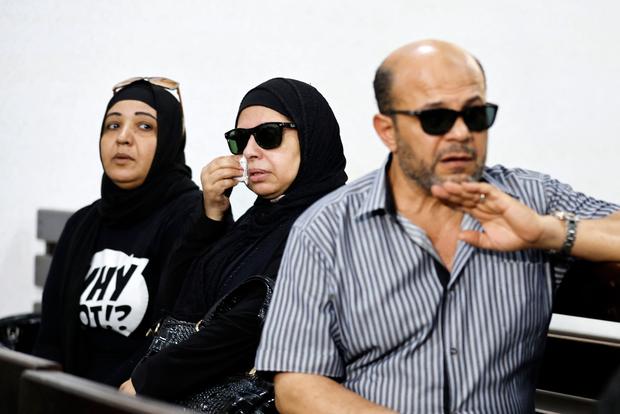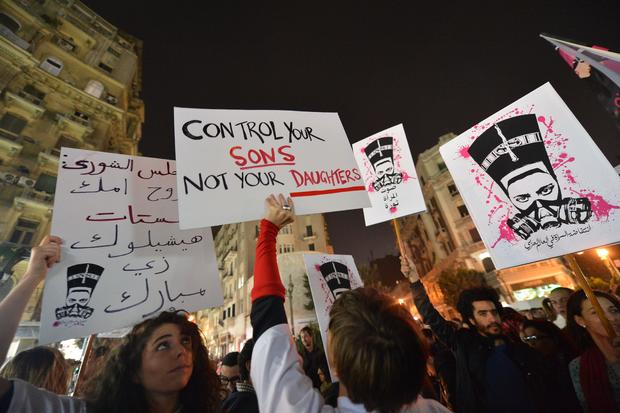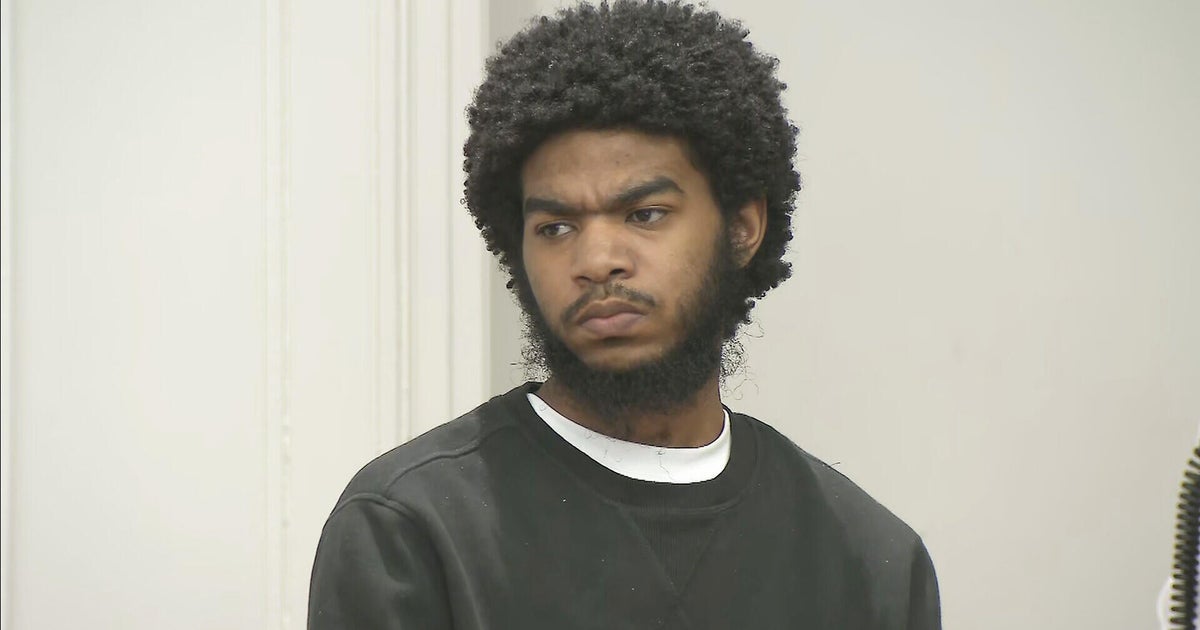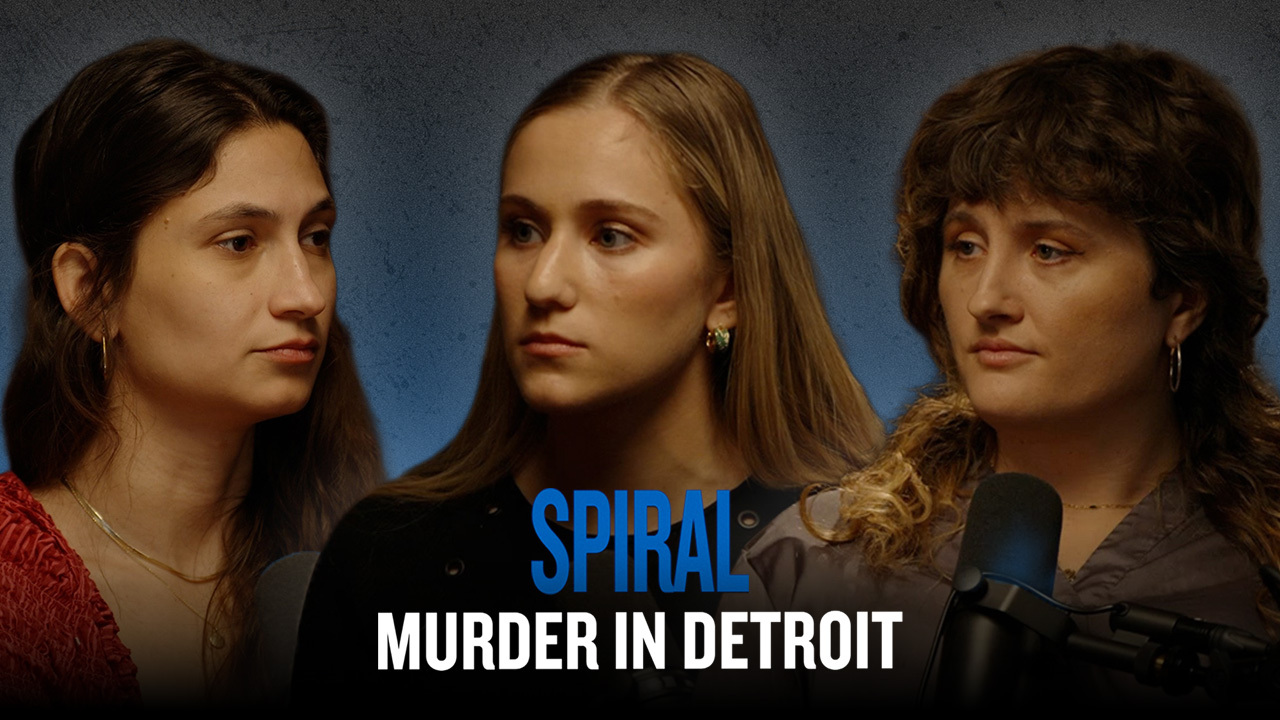Woman's gruesome murder and a sheikh blaming the victim reveal Egypt's problem with violence against women
Cairo — One week ago, 21-year-old Nayera Ashraf was about to walk through the gates of her university in Egypt's northern city of Mansoura when a colleague approached her and stabbed her several times. Horrific video of the attack shows her fighting for her life on the ground as bystanders try to help and the assailant waves his knife in their faces before cutting her throat.
It emerged later that Ashraf had rejected a marriage proposal from her attacker. The young man was quickly restrained and eventually arrested, and Egypt's public prosecutor referred him for criminal prosecution on a charge of premeditated murder. At the first hearing in the case on Sunday, prosecutors said they had found "messages threatening to cut her throat" from the man on Ashraf's phone.
As tragic and gruesome as this crime was, violence against women in Egypt is far from atypical, and the rhetoric used by one prominent religious figure right after the murder may help to explain why.
Unlike some more conservative Muslim countries, Egypt does not have laws that require women to cover their hair in public. There are still many deeply conservative religious scholars and preachers in the country, however, who push a narrative that blames the victims for violence against women — even for attacks as heinous as the one in Mansoura.
The victim of last week's attack, Ashraf, did not have her hair covered.
"When sheikhs talked about hijab (the Islamic headscarf), we heard those saying, 'it is a matter of personal freedoms!'" Sheikh Mabrouk Attia told his 1 million-plus followers in a video posted to his social media channels on the same day Ashraf was killed. "Fine then, leave your hair to fly over your cheeks and wear tight clothing, and those who are drooling will hunt you down and kill you."
"If your life is precious to you, go out fully covered. Why? Because those who are poor and sexually deprived will see you and cut your throat, so go on and let them cut your throat," said the sheikh, who is the former dean of Islamic studies at Al-Azhar University, the oldest college in Egypt.
The views voiced by Attia — who hosted his own TV show for years and now appears on another show weekly — are not unique in Egypt or in the region. Many Islamic preachers push even more conservative ideas, insisting the hijab is not enough and that women's entire bodies and faces should be covered.
But, perhaps due to the timing of his remarks, with Ashraf's blood still staining the street in Mansoura, they drew a significant backlash.
Egypt's National Council for Women condemned his statements and said it would file a complaint against the cleric with the public prosecutor's office.
"Societal culture that entrenches and perpetuates patriarchal authority and the dominance of men finds in religious motives a haven to impose control and limit the roles of women and justify violence under its slogan," Nagwa Ramadan, head of the Edraak Foundation for Development and Equality, told CBS News.
She said many people in Egypt, particularly in poorer, less educated parts of the country, still "have great confidence in the sheikh character," generally, and turn to the religious leaders for guidance on their daily lives.
"Some of them take their words literally," Ramadan said, noting that prominent figures such as Attia "are interested in fatwas targeting women in general, making them the focus of constant media attention, which in some way leads to an escalation of violence against women."
A study by the NCW found that 7.9 million Egyptian women "suffer from all forms of violence yearly, and less than 1% of this number report incidents or seek help."
The Edraak Foundation said it had documented 335 violent crimes against women and girls in Egypt between January and April of this year alone. The number of such crimes tallied by the group in all of 2021 was nearly double the figure from the previous year.
Beyond the worrying statistics, the brutality of the crimes is also shocking. Just days before Ashraf was murdered outside the gates of her university, a man cut off his wife's ears and stabbed her 20 times after a domestic dispute.
Fatema Khafagy, a leading Egyptian rights activist who has represented Egypt at various United Nations agencies and heads the national Feminists Union, told CBS News she believes multiple factors are fueling a rise in all kinds of violence in Egypt, including religion, politics and economic woes.
She said she could not understand, however, why preachers like Attia are allowed to continue appearing on television to push their extreme views.
"I don't know why they are focusing on women," she told CBS News. "There is an arrogance and determination that they know it all. I mean, people like this should be taken off all media. They should be stopped, and enough, really, really enough religion."






